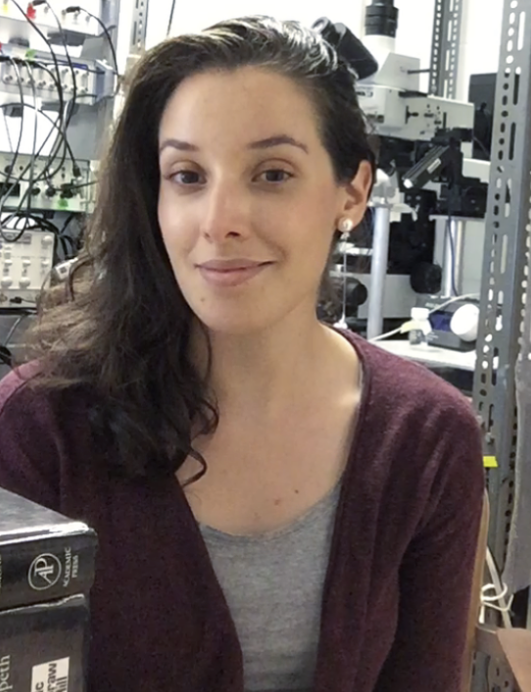PBy utilizing the skills and life lessons she learned from her unique background, professor Alicia Catalina Barrientos carved out a path that allows her to pursue a Ph.D. in behavioral and cognitive neuroscience, conduct research, and teach – all at Queens College. Barrientos’s research in Dr. Joshua Brumberg’s laboratory focuses different topics: the early development of mammals, the somatosensory cortex, and plasticity in the mammalian brain. Early development is especially interesting to her, as it is a sensitive period when an individual is making the first contacts with the environment through absorbing sensory information and incorporating it into their nervous system in a way that makes them better adapted to their surroundings. In the lab, she focuses on the sense of touch. “If we picture the brain as a complex circuit board…one way to start comprehending it is by exploring the circuit elements that make up the wiring diagram,” said Barrientos. “To understand how our senses develop, it’s necessary to identify the parts of the whole: the components that make up the brain areas that assign meaning to sensory information”.
In the laboratory Barrientos studies microglia, cells that act as an immune system for our brains that fine tune connections between neurons, and perineuronal nets, structures that wrap around neurons that emerge and “harden” as the critical period of an organism’s life closes. She studies how these two components interact in the mouse brain.
Barrientos also studies the effects of sensory deprivation. Scientists observe a correlation between what we see in children living in impoverished environments, and behaviors or maladaptive traits that are also displayed by children with autism. The striking similarity between the two groups suggest that perhaps there are some dysfunctional brain mechanisms that overlap.
One of her duties outside of the laboratory is teaching. She has taught psychology 243: introduction to behavioral neuroscience for 5 semesters now, and is very appreciative of being able to partake in education, which she describes as humbling and rewarding. With the guidance of Dr. Carolyn Pytte, the course master instructor, she learned a lot about developing a course and deviating from a traditional lecture model to become more engaging. Having taken the class herself as an undergraduate, she understands the intimidation students may face in the class.
At the time, Barrientos was a French major. “When I took the course I was extremely intimidated, I almost dropped it. So I think it’s important to instill confidence in students that no matter what your background is, you can fall in love with a topic, especially if a professor knows how to unpack it in a way where students can make those emotional connections drawing them in to care.” said Barrientos.
Additionally, she incorporates aspects of her personal life and cultural background in order to become a more open-minded scientist and a better educator.
This element of her teaching transcends into her outlook in the field of neuroscience. When discussing the relationship society has with science, she believes in a more human approach, where people can embrace a variety of intercultural and interdisciplinary backgrounds when looking at and communicating scientific research.
Although very active in her duties as a Ph.D. student, what takes priority in Barrientos’s life is family. Barrientos is from Córdoba, Argentina, where the culture is very pro-social and community-centered. Being an immigrant and caretaker to sick family members taught her the true meaning of balance, and the value of having a community and support system behind you. It taught her how to be your own self advocate, to exercise agency over the things that may happen to you, and how and when to ask for help.
“We are not as in control as we think we are. Part of knowing how to live life is to accept things as they are and not what we would like them to be.” said Barrientos. “Accepting doesn’t mean that you’re okay with it. It’s the opposite actually. It’s only when you have a clear understanding of what you’re dealing with that you can come up with the best plan to move forward—to make decisions like: Do I change my strategy or is what I’m doing working out fine?”
Barrientos hopes to teach and conduct research in an academic setting in South America one day. But as she described, “My life has taken me on very wide turns so far, so who knows what lies ahead for me.”














